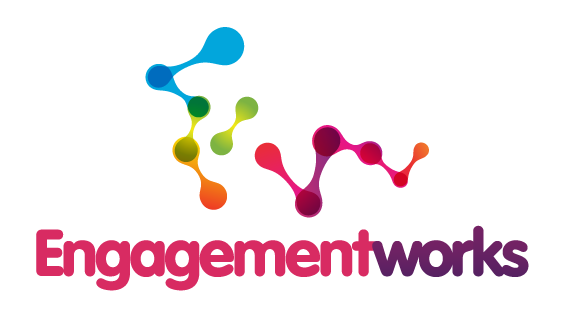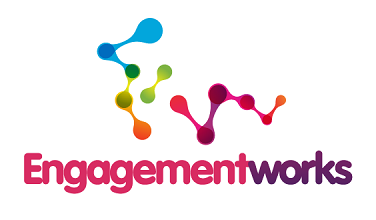The following question was recently added by Engagementworks Director Brett Sangster to the Community Engagement Group on LinkedIn:
“This week’s engagement question: What’s the most important lesson you’ve learned from community engagement? Good or bad. Summarised in a sentence would be useful!”
This discussion inspired over 75 people to make more than 160 comments triggered by the original proposition and also to share their experiences and beliefs. Many comments exceeded the suggested one sentence contribution.
Participants were multi-national, from countries including New Zealand, Australia, the USA, the UK and Pakistan. A lesson from that is that the challenges of community engagement and the principles that can be applied to its delivery are (or should be) the same everywhere. Some seasoned professionals contributed, as did others keen to grow their knowledge and understanding of engagement.
So what were these important lessons that contributors provided? They can be summarised as follows:
A single document summary of all of the contributions up to 14 January 2015 (New Zealand time) can be downloaded below. The discussion on LinkedIn continues…
“This week’s engagement question: What’s the most important lesson you’ve learned from community engagement? Good or bad. Summarised in a sentence would be useful!”
This discussion inspired over 75 people to make more than 160 comments triggered by the original proposition and also to share their experiences and beliefs. Many comments exceeded the suggested one sentence contribution.
Participants were multi-national, from countries including New Zealand, Australia, the USA, the UK and Pakistan. A lesson from that is that the challenges of community engagement and the principles that can be applied to its delivery are (or should be) the same everywhere. Some seasoned professionals contributed, as did others keen to grow their knowledge and understanding of engagement.
So what were these important lessons that contributors provided? They can be summarised as follows:
- Engagement done badly will hurt your organisation’s reputation
- Badly done engagement can widen a gap between an organisation and its communities rather than bridging it
- Good engagement is about making good community connections
- Don’t discount or overlook young people
- Youth build connections better than most, nudge you to walk your talk and inspire hope in the possibility of change
- Be honest, transparent and don’t make promises you can’t keep
- Under promise and over deliver
- Good decisions are made with timely input from those affected
- Shut up and listen
- Assume nothing. Listen and learn
- Don’t start with preconceived answers and seek to validate those
- Seek to uncover all issues and concerns
- If you can’t listen, don’t ask
- Don’t ask questions you don’t want to hear the answer to
- Listening and evaluating what you hear in the correct context is vital
- Communities soon decide to ignore an agency with fixed ideas and its own agenda
- Understand what communities think they need rather than what your organisation wants to provide
- Engagement isn’t a popularity contest
- Manage expectations internally and externally
- Keep participants updated regularly and they’ll be more willing to engage again in the future
- Engagement can be manipulative when the questions asked don’t address real community issues or are just about ticking compliance boxes
- Communities can smell tokenism a mile away
- Unless a community accepts you, your efforts will not bear fruit
- Community members should be the decision-makers
- Embrace controversy! Be prepared to have awkward conversations
- Be clear about where the engagement boundaries are
- Build rapport and be candid
- Don’t patronise, particularly lower socio-economic or disadvantaged groups
- Learn to accept criticism and don’t be afraid to challenge openly and constructively
- Keep communities updated about progress and outcomes, particularly the gatekeepers for certain groups
- Vocal minorities do not represent all community views
- Don’t make assumptions and beware of agency experts
- Have simple, open, honest and authentic conversations
- Don’t talk about “them” or “us” and avoid corporate jargon
- Let participants shape the vision and values for engagement
- Patience, absolute patience
- Community engagement should be mutually beneficial, even though values may not align
- Beware of mixed messages coming from different agency silos
- Watch out for organisational silos where agencies are self-protective and unprepared to share knowledge or resources
- Engagement is not a vote. Make sure that communities understand that
- Value trust and respect different perspectives
- Don’t let information gathered fall on deaf ears
- Treating others as you would want to be treated yourself may not be appropriate in some cultural situations. Understand different perspectives
- Governments or agencies don’t hold the patent on good ideas
- Don’t go for a complex solution when a simple one will work
- Respect the strength to be found in diversity
- When barriers come down, then we can talk
- Effective engagement can break down barriers
- Good things take time. Don’t rush participants
- Building trust takes time and can be easily lost
- Take time to rest and reflect
- Adopt engagement early for long-term benefits
- Expect the unexpected, which may be positive rather than negative
- Be prepared to listen, respond and deliver
- People are not “hard to reach”. Rather they are “seldom heard”
- Not everybody is interested in public meetings or questionnaires. Understand the difference between “hard to reach” groups and using appropriate tools
- Be careful when using third-party consultants and facilitators.
A single document summary of all of the contributions up to 14 January 2015 (New Zealand time) can be downloaded below. The discussion on LinkedIn continues…
| engagement_lessons.xlsx |


 RSS Feed
RSS Feed
